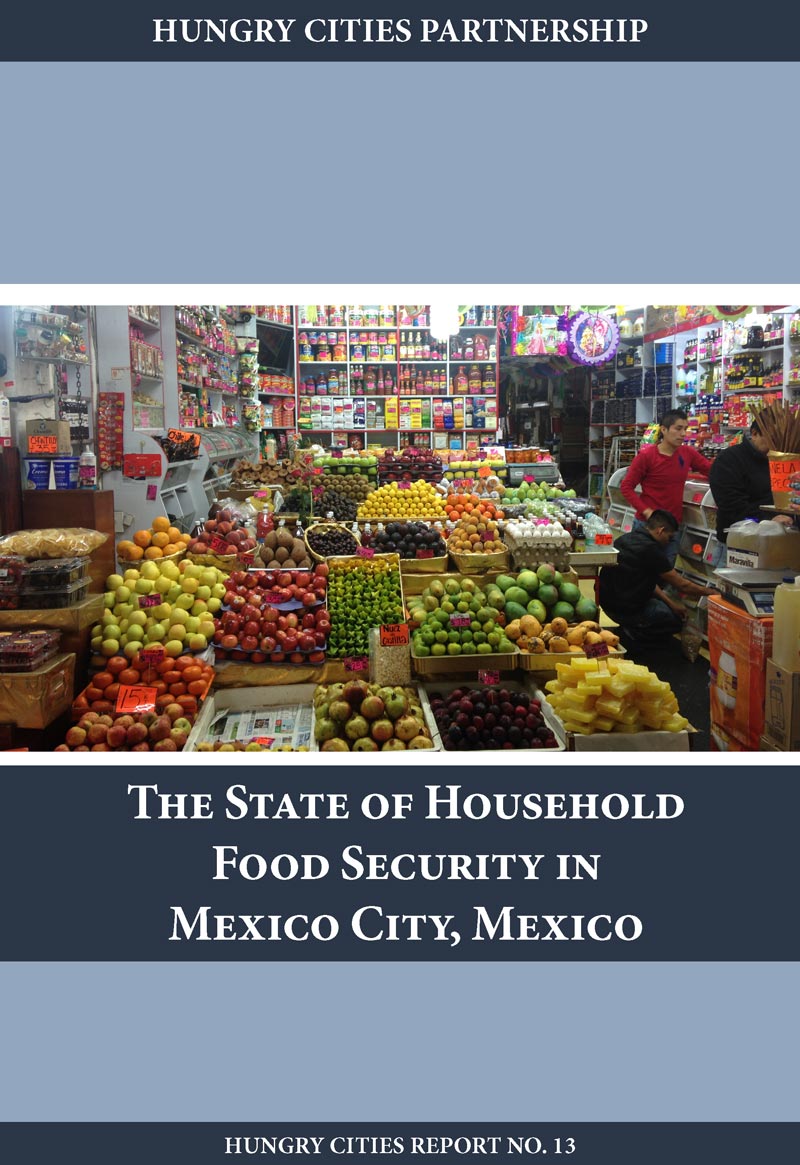About one in every four households in Mexico City are severely food insecure, while another quarter are mildly or moderately food insecure. Overall, food insecurity in Mexico’s capital is not a problem of food scarcity or shortage but rather of constrained access to a diverse range of foods. These are among the major findings of a city-wide survey of 1,200 households that are presented and discussed in this report. The survey found that households in Mexico City procure their food products primarily based on proximity and convenience. Most foods are purchased within the households’ neighbourhoods or within walking distance. Markets and small shops are the two most commonly frequented food retailers, followed by markets on wheels and supermarkets. Another key finding is that households whose main income source is formal wage work have on average higher dietary diversity, lower food insecurity, and more consistent food provisioning throughout the year than households whose income source is informal wage work. It is therefore more likely for a household in Mexico City to be food insecure across all measurements if its main source of income is informal wage work. As a critical source of food and livelihoods in Mexico City, small-scale vendors should be given all the support they need from national and local policy makers and other stakeholders.

